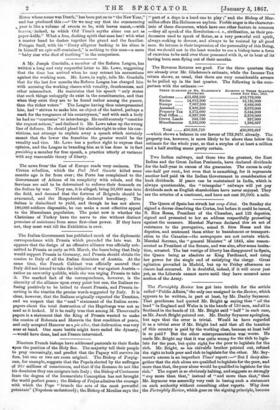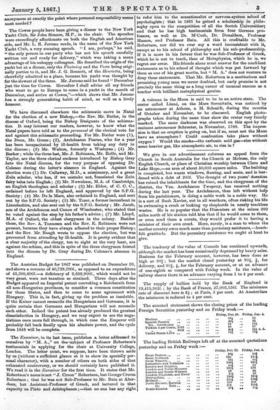The Fortnightly Review has got into trouble for the article
called "Public Affairs," the only one unsigned in the Review, which appears to be written, in part at least, by Mr. Danby Seymour. That gentleman had quoted Mr. Bright aaa saying that "all the land" in England and Wales is in the hands of 150 men, and all in Scotland in the hands of 12. Mr. Bright said " half " in each case, as Mr. Jacob Bright pointed out. Mr. Danby Seymour apologizes, but says that the error is trivial. Would he have regarded it as a trivial error if Mr. Bright had said that all the taxation of this country is paid by the working class, because at least half is so paid ? But the other misrepresentation was worse. He made Mr. Bright say that it was quite wrong for the rich to legis- late for the poor, but quite right for the poor to legislate for the rich. Mr. Bright, as his chivalric brother pointed out, refused the right to both poor and rich to legislate for the other. Mr. Sey- mour's excuse is an imperfect Times' report :—" But I den-y alto- gether that the rich alone are qualified to legislate for the poor, and more than that, the poor alone would be qualified to legislate for the rich." The report is so obviously halting, and suggests so strongly "any more than that," instead of "and more than that," that Mr. Seymour was assuredly very rash in basing such a statement on such authority without consulting other reports. Why does the Fortnightly Review, which goes on the signing principle, become
anonymous at exactly the point where personal responsibility seems most needed?





































 Previous page
Previous page